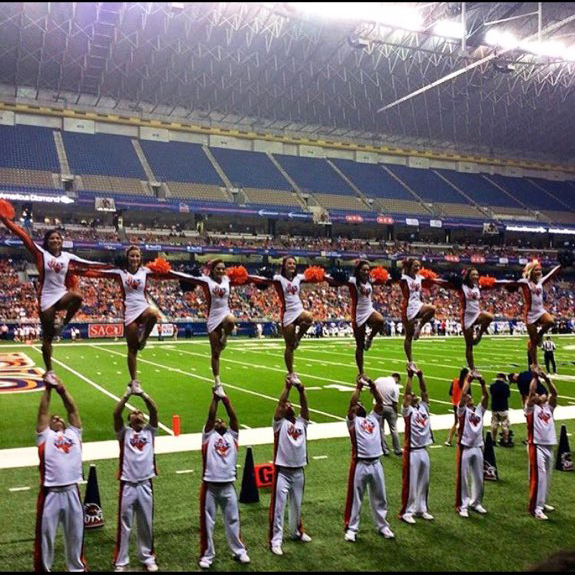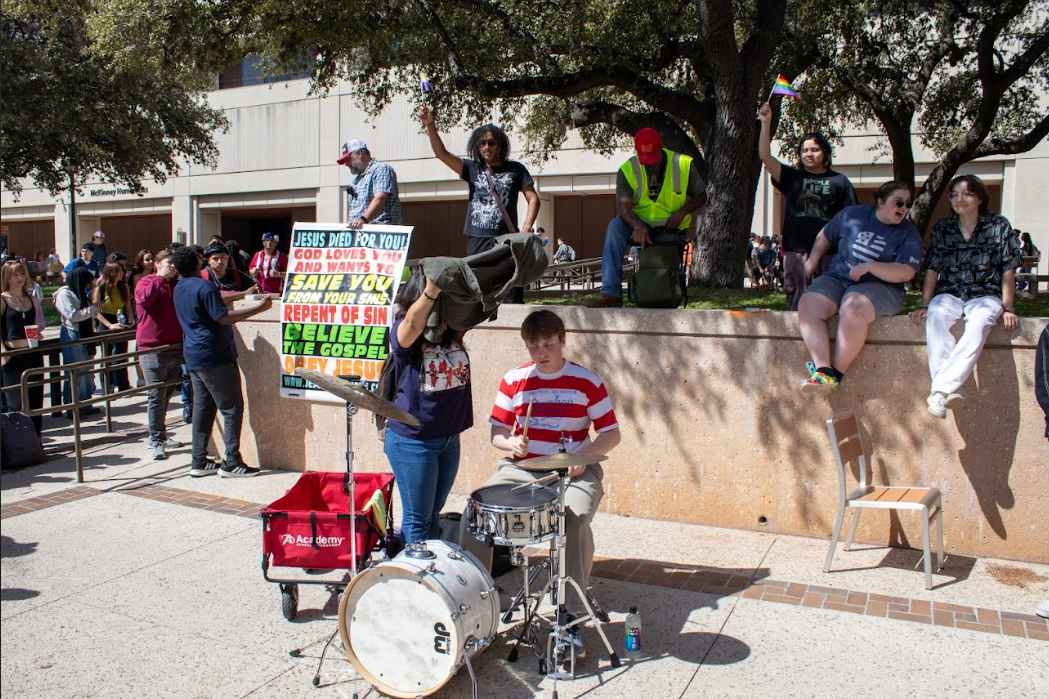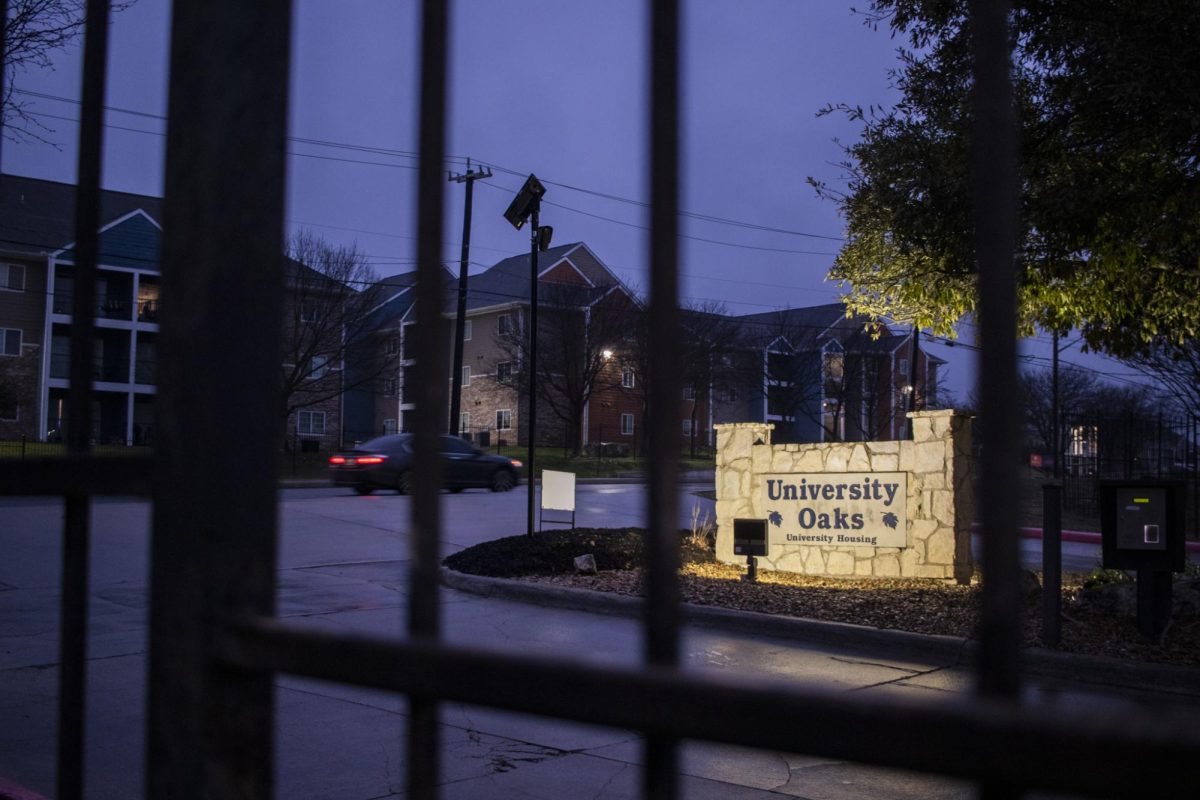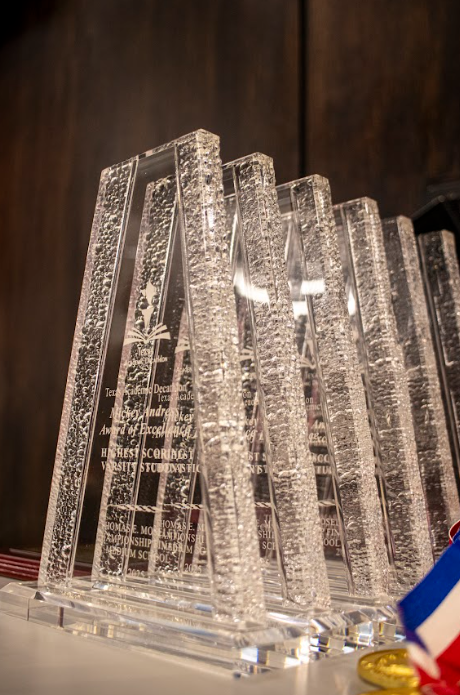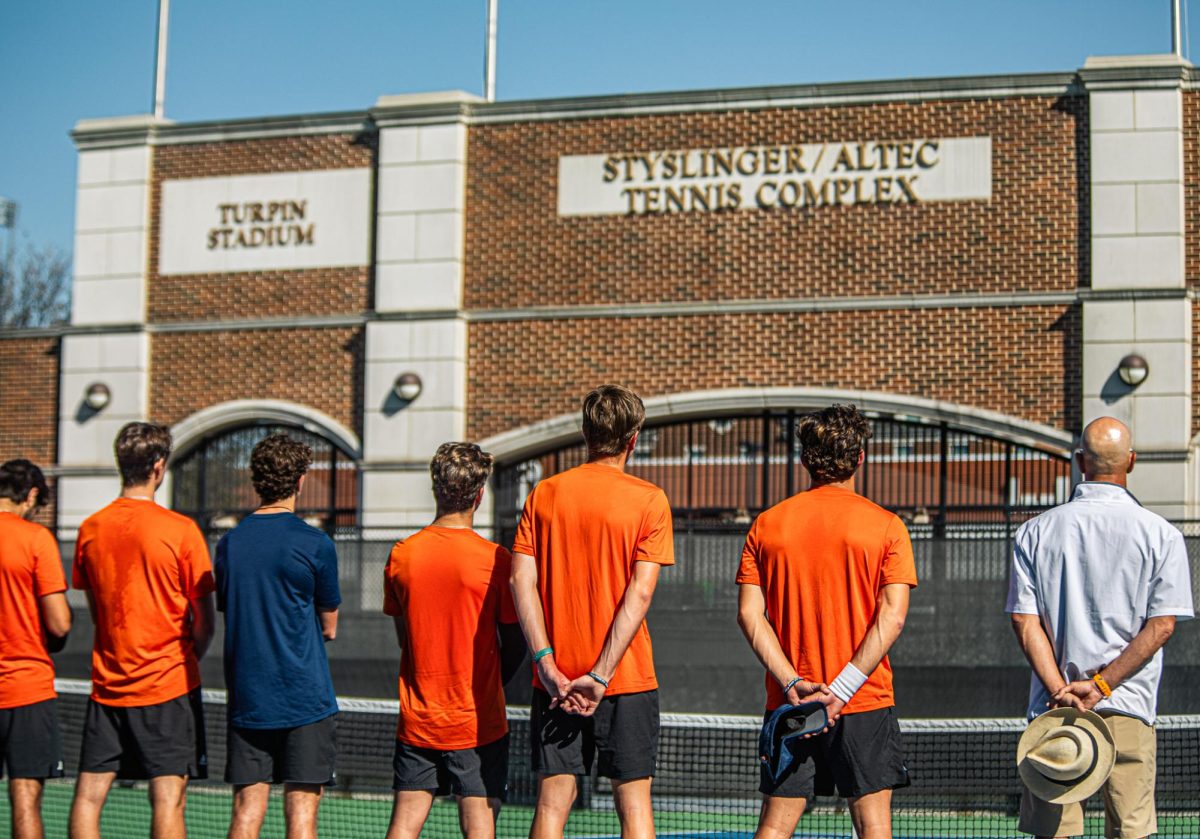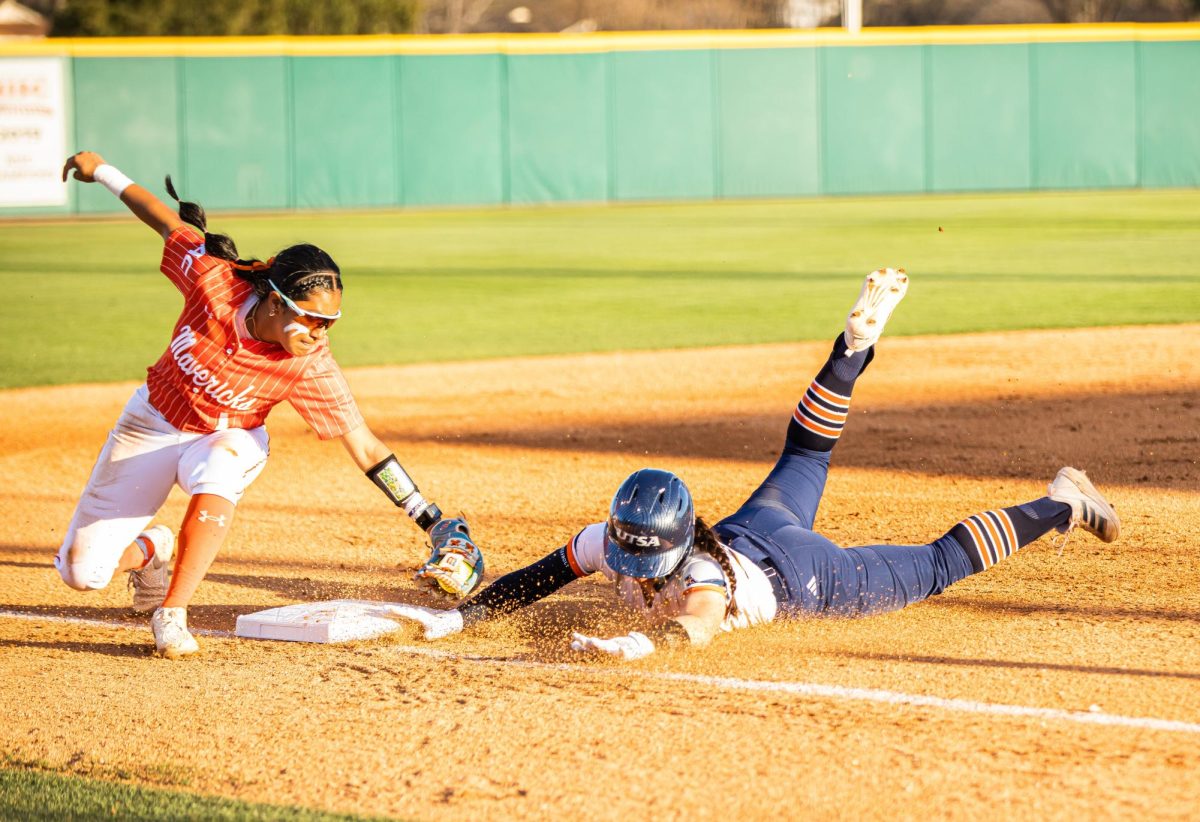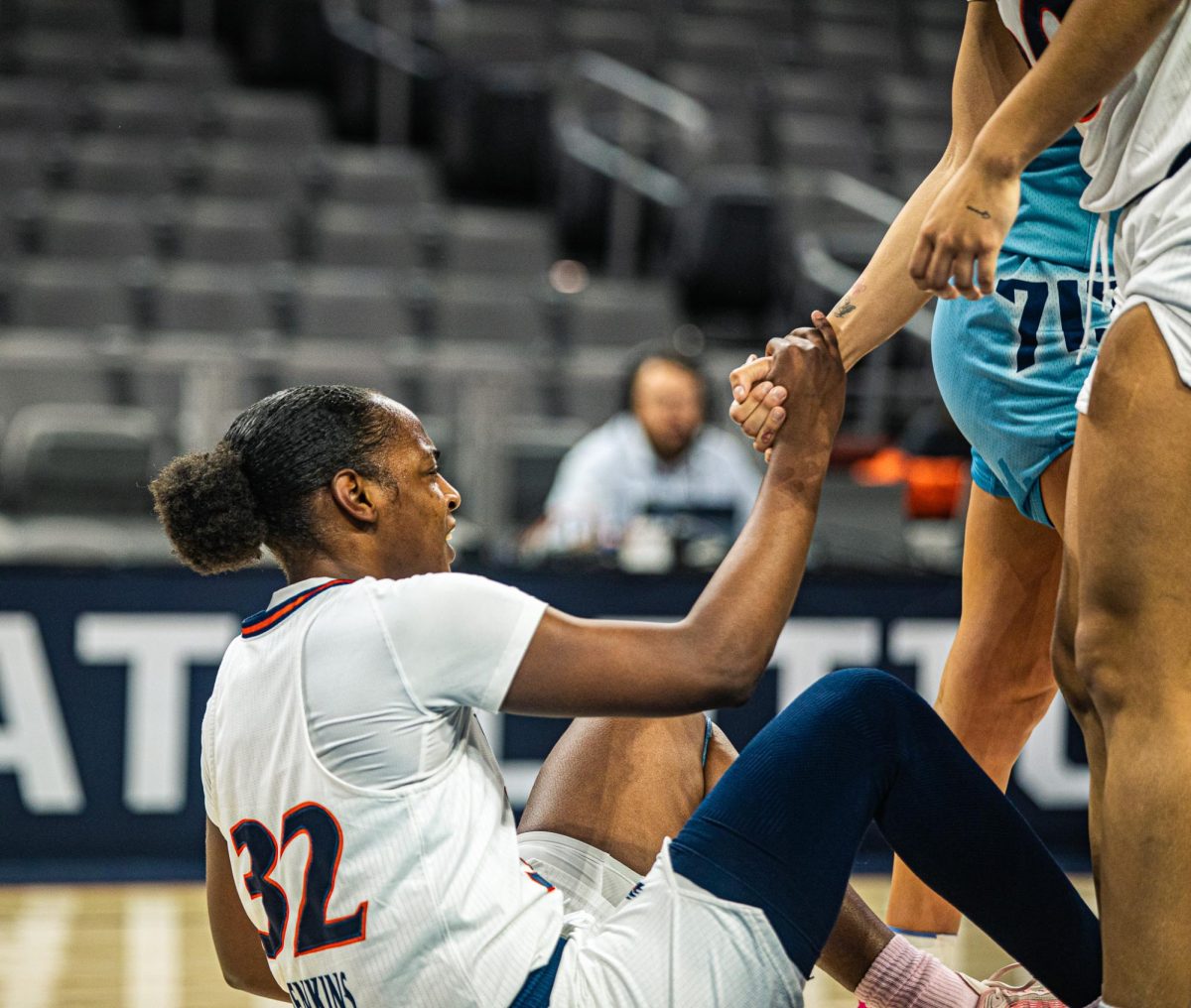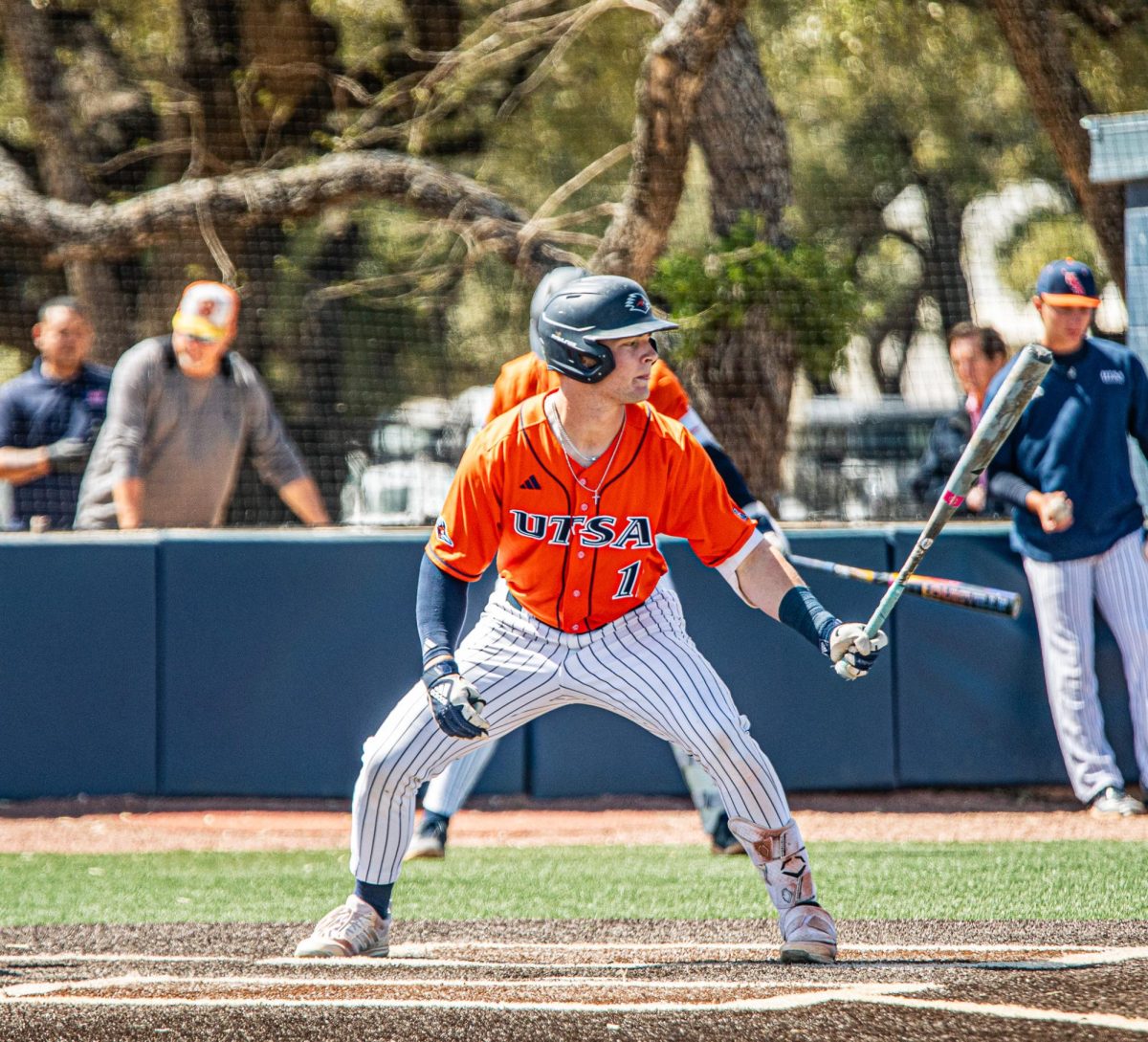This spring, Senior Associate Athletics Director Kellie Elliot announced to the cheerleading squad that they would no longer be allowed to compete.
The reason: UTSA Athletics planned to redirect the focus of the program.
The squad, which has competed for over 10 years in the National Cheerleading Associations’ (NCA) collegiate national championship, holds a 2012 national title for its “All- Girl” team and has placed in second for the past two years.
The decision to refocus the cheer program, Elliot explained, was made so the squad could concentrate on its game day performances.
“We need to have first, a really strong, what they call ‘sideline cheer’ group.
When we stepped back and looked at how they were funded and the resources they had – just to take care of them – to do just that first responsibility(cheer at games) that’s why they’re here,” said UTSA Athletics Director Lynn Hickey. “They are not here for competition. They are here for sideline, game-day experience.”
Harper Bush, junior and a captain of the squad, described her reaction.
“I was hurt thinking about how I have put years of training into something that is considered not worth keeping. I was embarrassed that my performance on game day might have contributed to the decision, and I was disappointed that I might never get the opportunity to compete for a national title after getting second twice.”
Th news was unexpected to the squad
“They told us about a 7 a.m. meeting late the night before,” Karla Avila said, a senior athletic medicine major and a captain of the UTSA cheer squad. “So we were all wondering, ‘Okay, what is going on?’”
When the cheer team met with Elliot, the room “was filled with emotions” Avila said.
“Everybody was stating their opinions. She (Elliot) just said that she didn’t care. We were paying too much attention to nationals and not enough to game day performances, and we have to try to build traditions and leave a legacy before we can think about competing,” Avila stated.
According to Hickey, the fans’ game-day experience could be improved.
“Fair or not, the cheer squad and spirit team is the group that helps create those sayings and helps energize the crowd.”
“We do one cheer, ‘UT- SA!’ People still don’t know our fight song,” Hickey said, explaining that the group needs to create more traditions and original cheers for the sideline.
Bush agreed that the game-day experience could be improved by cheer.
“I also think that this is an objective of the cheer squad along with many other groups. Some of the examples we have heard about traditions involve the cheer team but can’t be organized by the squad. I think we can do both (sideline and competitive cheer).”
According to Elliot, the sense of urgency in calling the meeting was due to tryouts quickly approaching and the leadership in athletics and the cheer program agreeing it would be unfair to allow prospective cheerleaders to try out without knowing the competitive aspect of the program was no longer available.
“We had been discussing with their leadership that we were evaluating the program to see how it was going. So that was communicated to their leadership. That was not communicated to the cheer squad,” Elliot stated. According to Hickey, the discussion to refocus the program began in January.
The cheer team’s coach, Jason Gregory, has resigned. Hickey said that the new hire will have a background in competitive cheer. “We’re not taking that completely off the table, but they know that their responsibility is to come here and get our game-day experience, our sideline cheer program really established strongly.”
The conflict between the squad and athletics stemmed from a miscommunication regarding the cheer team’s failure to attend the NCAA basketball tournament in Alabama. Bush explained that Coach Gregory told the squad they wouldn’t be attending the tournament.
“I was disappointed because it was something that I looked forward to after going the year before. Many of us were confused, but brushed it off, thinking that perhaps we weren’t needed or wanted there,” Bush said.
“After the ‘no competition’ decision was made, we were told that the Athletics department had heard that the cheerleaders refused to go. This was a huge miscommunication. The team had no idea,” explained Bush.
Hickey stated it’s important not to throw one individual “under the bus” and, as the leader of the program, she takes responsibility for any miscommunication.
“They did not show up to the conference tournament; after I talked to the students,” Hickey started, “I don’t think that they really had input in that decision, but I did now know that. When Kellie (Elliot) and I met with them, a lot of them were shocked that had happened.”
Besides the basketball tournament, they have never missed a game to practice or attend the NCA competition in Daytona, Florida.
“We cheer for all these other sports throughout the year, and we just want one thing for ourselves and that’s (nationals) where we get to show off our main skills,” Avila said.
A change.org petition titled “Help UTSA Cheerleading Compete at NCA College Nationals,” has garnered almost 3,400 signatures. Former UTSA football player Jesse Medrano commented on the petition. “Our cheerleaders always backed us no matter the outcome. Now it’s our turn to back them and let them have the chance to go out and compete.”
Hickey and Elliot reiterated that the decision was not meant to be harmful but to build up a strong sideline program but Avila worries that many of the higher skilled cheerleaders have transferred or decided not to try out knowing that they will not be allowed to compete.
“It’s sad because we’re losing a lot of people because of the decision. We had four rookies (first year cheerleaders) transfer so far. We had about 12 rookies that were coming for tryouts decide not to try out because of the situation, and we have a couple of veterans who are quitting because it’s too late for us to transfer,” Avila said.
Despite this result, Hickey believes the team had a good tryout with 58 prospective members trying out. “There is the potential that we’re going to lose some students that are really into the gymnastics part of this, but we will still have a very good squad,” Hickey stated.
“It is easier to improve sideline cheer than it is to rebuild a team after years of not competing,” Bush said.
Because cheerleading is not designated as a NCAA sport, the squad does not count toward Title IX numbers. Title IX is the groundbreaking federal civil rights legislation that prohibits sex discrimination in education. “It is not a sanctioned sport; it is not a varsity sport. You can’t even count them in the Title IX numbers, so it doesn’t help gender equity,” Hickey explained. “It’s recognized as more of a service organization more than it is a varsity sport.”
The decision to disallow competition was also an economic one. “You know, the funding issues…that’s paramount,” Hickey said.
According to Hickey, athletics would sometimes cover $20-30,000 for the weekend competition in Daytona. Hickey would like that funding to go toward “equipment” such as new uniforms and shoes. She would also like the squad to attend summer camp for training.
“It would be nice to have these things and look really good on game days, but I don’t think it affected our performance on the field or court,” said Bush. “I would be grateful for more uniforms and shoes without holes and completely understand that these changes need to be made, but I don’t think they are more important than competition,” she added.
The squad did much fundraising on its own. Each squad member is required to show up for 30-40 “appearance hours,” which could be anything from an elementary school pep rally to a new, local restaurant opening. The squad will take pictures and greet people in exchange for a donation.
They are also required to sell at least 30 twelve-dollar t-shirts, hold mini and high school cheer clinics and work outside cheer competitions, all to raise money.
The squad also used crowd-funding websites like gofundme.com to generate funds for new shoes, and they received a $2,000 donation toward uniforms.
According to Hickey, other student athletes participate in similar appearance hours or service programs and are not paid. “They show up,” she stated.
However, most student athletes are given “full rides” toward their tuition. Track, baseball and softball students receive “partial rides.” A first-year cheerleader does not receive a scholarship. A second year cheerleader receives $150, a third year receives $300 and a fourth year veteran receives $450.
Hickey stated this was “not unusual in our culture.” UT-Austin cheerleaders do not receive scholarships at all.
“I’m not trying to be unfair or hurtful, but cheerleading, our spirit team, is not an NCAA sport and I think that line is difficult to understand, but it’s the academic expectations they have, the recognition they have from an NCAA level is not there. So that’s not comparing apples to apples,” Hickey said.
Alternatives to competitive cheer, like having a club team through Student Affairs, are being discussed, but, as of yet, there is no timeline for these potential options.
“This situation is not cheer against athletics. It is just cheer asking for another chance to compete at nationals,” Bush explained. “It is competitive cheerleaders hoping to prove they are worth being a priority. We love UTSA and UTSA cheer, and think it is important not to let the team we built deteriorate.”

